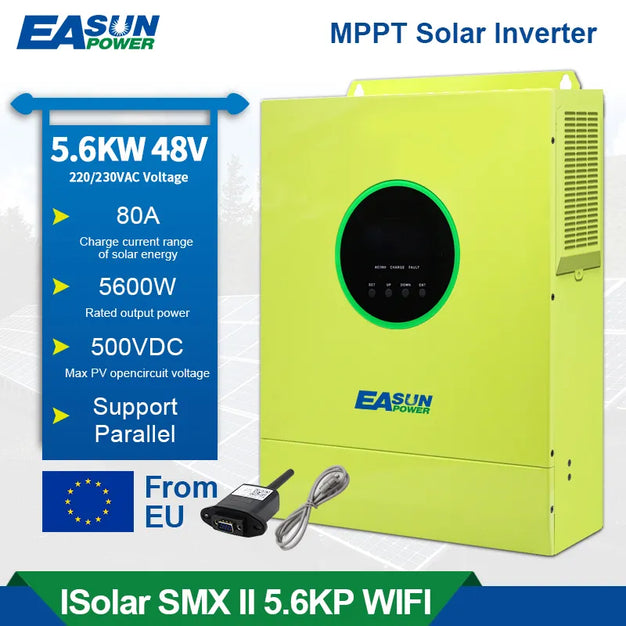Unlocking the Power: Discover the Game-Changing Benefits of LiFePO4 Batteries for Off-Grid Living!
As the trend of off-grid living continues to gain momentum, the importance of reliable energy sources has never been more critical. Individuals and families are increasingly seeking ways to disconnect from the traditional power grid, driven by a desire for self-sufficiency, sustainability, and connection to nature. In this context, LiFePO4 batteries for off-grid systems emerge as a revolutionary solution, providing a dependable and efficient energy source for off-grid systems. With their unique properties and capabilities, LiFePO4 batteries are becoming a favorite among those who wish to embrace a more independent lifestyle, ensuring that they have the power they need, wherever they may be.

Understanding LiFePO4 Batteries
LiFePO4 batteries are a type of lithium-ion battery that utilizes lithium iron phosphate as the cathode material. This chemical composition sets them apart from other battery technologies, such as lithium cobalt oxide and nickel manganese cobalt, which often prioritize energy density over safety. The unique properties of LiFePO4 batteries include a stable chemical structure that minimizes the risk of thermal runaway, making them one of the safest options available. Additionally, they offer a longer cycle life, allowing for more charge and discharge cycles compared to traditional lead-acid batteries. This durability is particularly advantageous for off-grid applications, where reliability is paramount and frequent battery replacements can be both costly and inconvenient.
Key Benefits of LiFePO4 Batteries for Off-Grid Systems
The advantages of LiFePO4 batteries for off-grid systems are manifold. First and foremost, their longevity is a significant benefit; these batteries can last up to 10 years or more with proper care and maintenance, vastly outpacing the lifespan of conventional batteries. Additionally, LiFePO4 batteries are known for their safety features; they are less prone to catching fire or exploding under extreme conditions, which is a crucial consideration in remote living situations. Their high efficiency means less energy wasted during charging and discharging, translating to more usable power for the user. Furthermore, LiFePO4 batteries are eco-friendly, as they do not contain toxic heavy metals, making them a more sustainable choice for those concerned about their environmental impact. By reducing reliance on fossil fuels and promoting renewable energy sources, these batteries support a greener future.
Specifications to Consider
When selecting a LiFePO4 battery for off-grid systems, several specifications should be taken into account. Capacity, measured in ampere-hours (Ah), indicates how much energy the battery can store and is crucial for determining how long it can power your appliances. Voltage ratings also matter—most off-grid systems operate on 12V, 24V, or 48V configurations, so it's essential to choose a battery that matches your system's requirements. Cycle life is another critical factor; it represents the number of complete charge/discharge cycles a battery can undergo before its capacity significantly diminishes. Typically, LiFePO4 batteries can handle thousands of cycles, ensuring longevity. Finally, temperature tolerance is vital, especially for off-grid users in varying climates. Some batteries perform best within a specific temperature range, and understanding these limits can help prevent damage and ensure optimum performance.
Applications of LiFePO4 Batteries in Off-Grid Systems
LiFePO4 batteries are versatile and can be used in various off-grid applications. One of the most common uses is in residential solar power systems, where they store energy generated during the day for use at night. My friend, who has a cabin in the woods, shared how switching to a LiFePO4 battery system allowed him to enjoy the comforts of home without compromising on sustainability. These batteries are also ideal for RVs and boats, providing reliable power for appliances while on the move. Their lightweight design and compact size make them easier to transport than traditional batteries. Additionally, they serve as excellent emergency backup power solutions, ensuring that essential devices remain operational during outages. Whether for recreational or survival purposes, LiFePO4 batteries have proven their worth in countless real-world scenarios.
Transforming Off-Grid Energy Solutions
In summary, LiFePO4 batteries are transforming the landscape of off-grid living by offering a reliable, safe, and sustainable energy solution. Their unique benefits, specifications, and wide-ranging applications make them an appealing choice for anyone looking to live off the grid. As more people embrace this lifestyle, considering LiFePO4 batteries as a viable option for powering their homes and adventures is a step toward a more sustainable energy future. With the right battery system in place, off-grid living can be both fulfilling and environmentally responsible.






